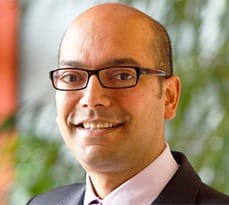‘Myopic’ decision-making by those on low-incomes creates a vicious cycle of poverty, but a new study co-authored at Cambridge Judge Business School says this can be addressed through increased community trust that helps the poor make forward-looking decisions.


More than 1.5 billion people live in extreme poverty worldwide, and even in the relatively wealthy US 14 per cent live below the poverty line. People in poverty make more “myopic” or short-term decisions rather than forward-looking decisions that could improve their situations.
A new study co-authored at Cambridge Judge Business School finds that increased community trust could help halt this “vicious cycle” of poverty by decreasing such myopic decision-making, suggesting that policymakers shift their focus from the low-income individual to the low-income community in order to build such trust and lift more people out of poverty.
“Building and boosting community trust can help decrease myopic decision-making and, in turn, contribute to reducing the incidence of poverty domestically and worldwide,” says the study just published in the Proceedings of the National Academy of Sciences.
The study focuses on how poverty leads to short-sighted choices “which in turn lead to poverty” as individuals forsake educational, financial and social activities that could alleviate their impoverished condition. Reasons for this myopic decision-making include the fact that low-income people may be less likely to believe that future payoffs will occur and are less able to forgo immediate reward due to higher financial need, so they “discount the future more heavily”.
The study found, however, that higher levels of community trust reduce such myopic decision making because individuals believe their community will act as a buffer, cushioning their imminent financial needs.
The findings emerged from four controlled studies, including one in which 285 participants from the US were asked to choose between $100 today and $150 in a year. The findings were then confirmed in a two-year community trust intervention in rural Bangladesh organised by development organisation BRAC and The Hunger Project, in which volunteers were trained as intermediaries between the community and the local government – boosting trust and lowering myopic decisions among people involved with those intermediaries.
“We think the findings have significant implications for the ability of governments and communities to address poverty by improving trust and leading to better decision-making by poorer people,” says study co-author Jaideep Prabhu, Professor of Marketing and Director of the Centre for India & Global Business at Cambridge Judge Business School. “The study focuses on community trust, which unlike generalised trust is more amenable to targeted intervention because people draw beliefs about their community from their individual daily interactions.
“The results suggest that policy should focus more on the low-income community rather than solely on the low-income individual, and increase opportunities for community interaction in order to build trust.”
The study – entitled “Community Trust Reduces Myopic Decisions of Low-Income Individuals” – was co-authored by Jon Jachimowicz and Salah Chafik of Columbia Business School, Sabeth Munrat of BRAC, Jaideep Prabhu of Cambridge Judge Business School, and Elke Weber of Princeton University.
“The poor may lack in material wealth relative to the rich, but they possess social wealth in the shape of their communities upon which they draw,” says the study. “Policy-makers could implement changes that give individuals in low-income communities more opportunities to develop community trust.”

